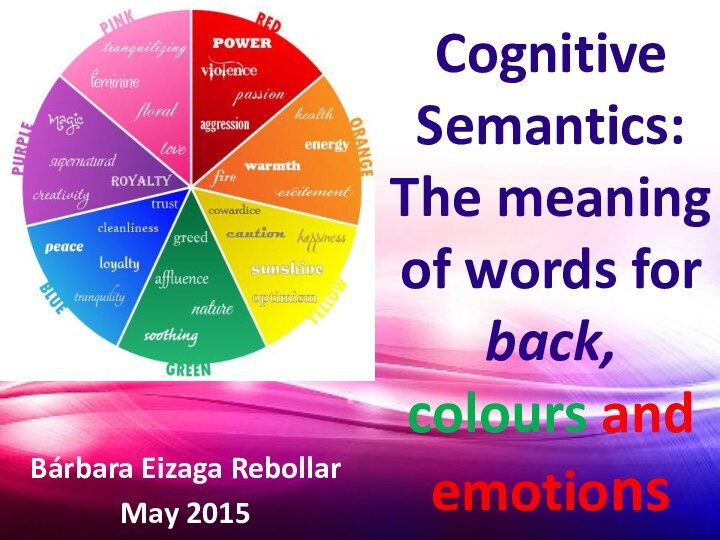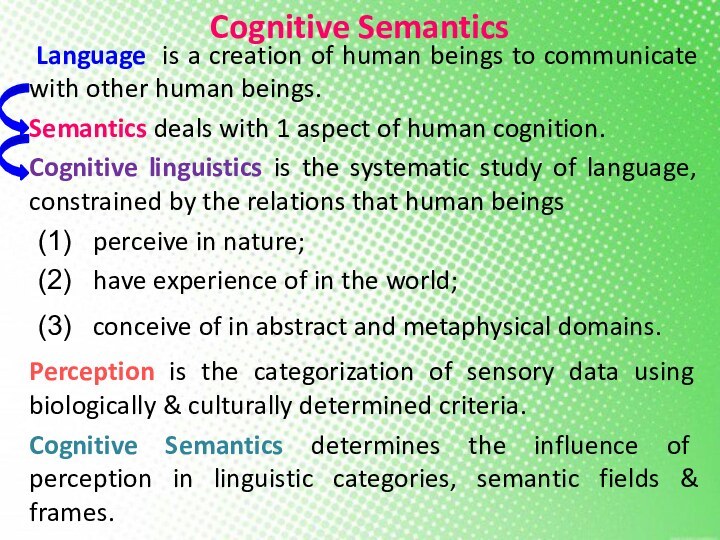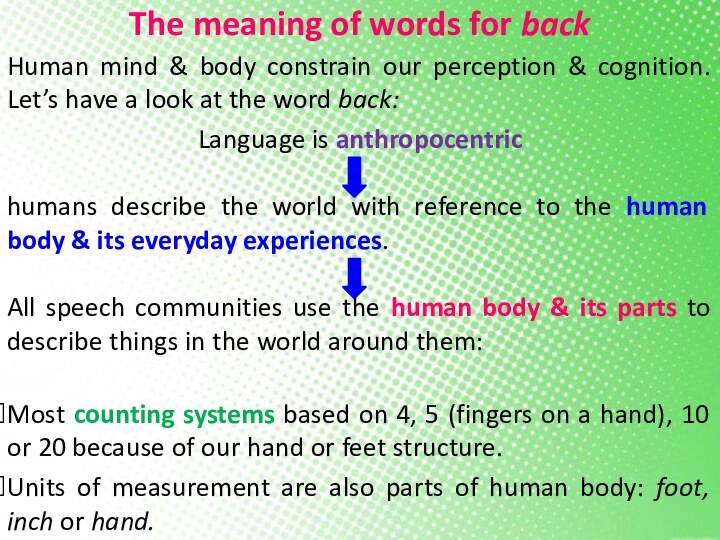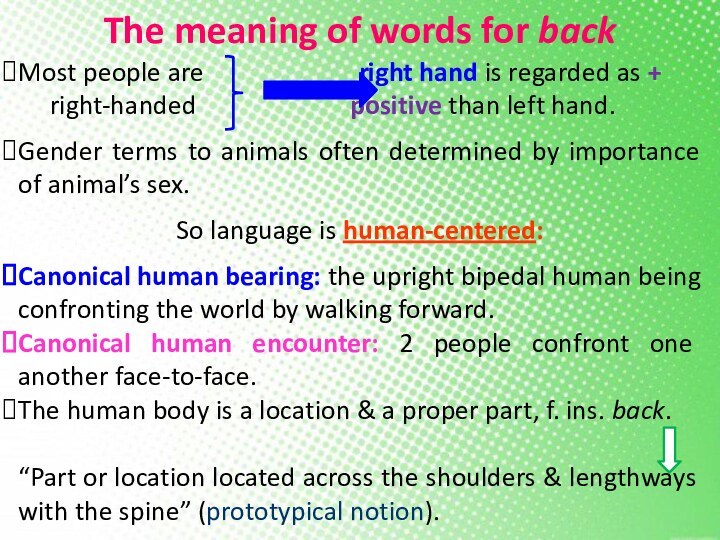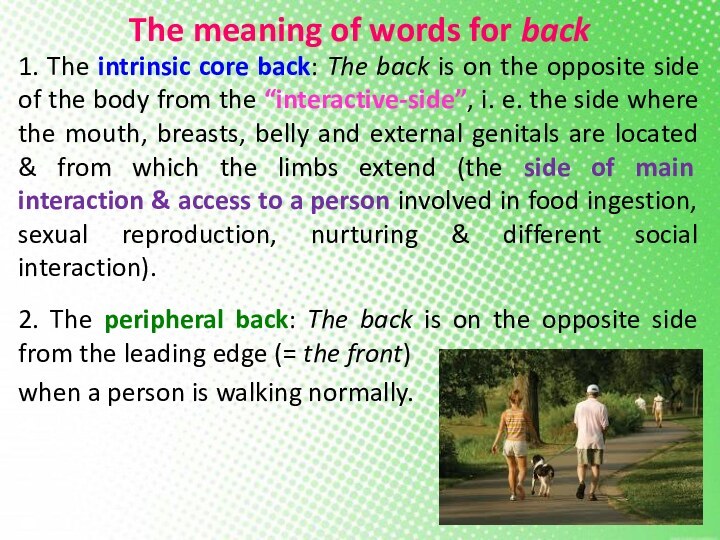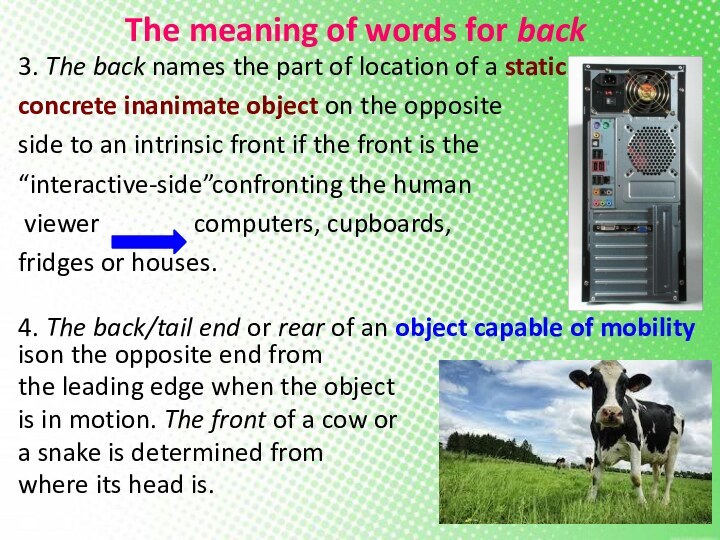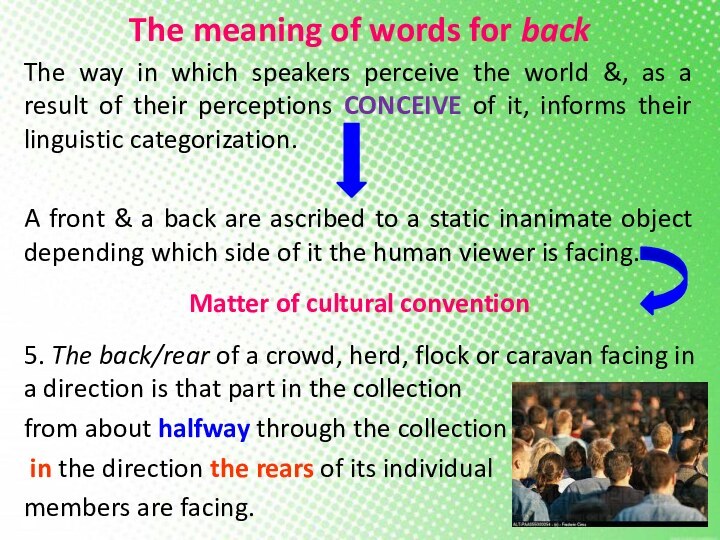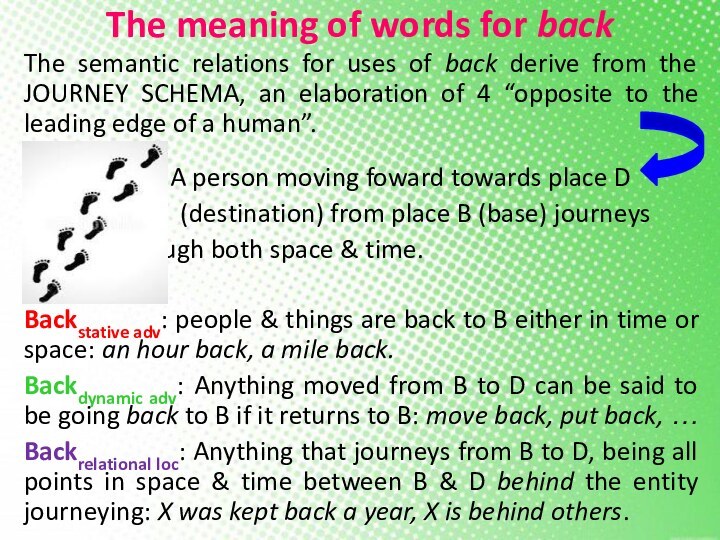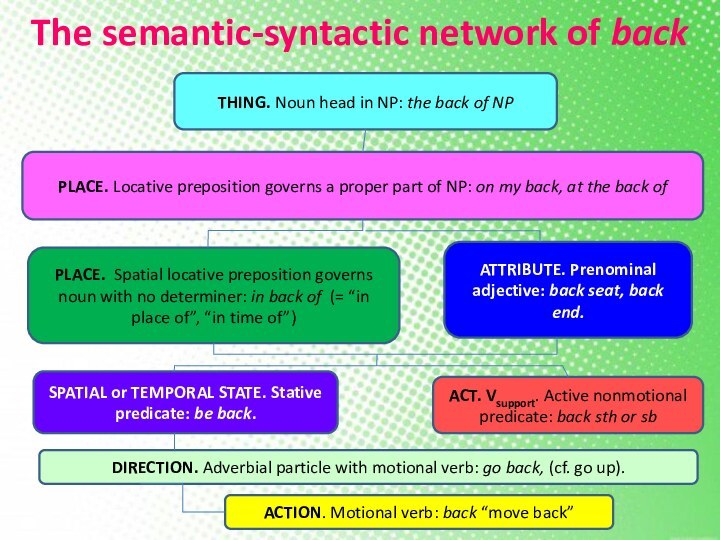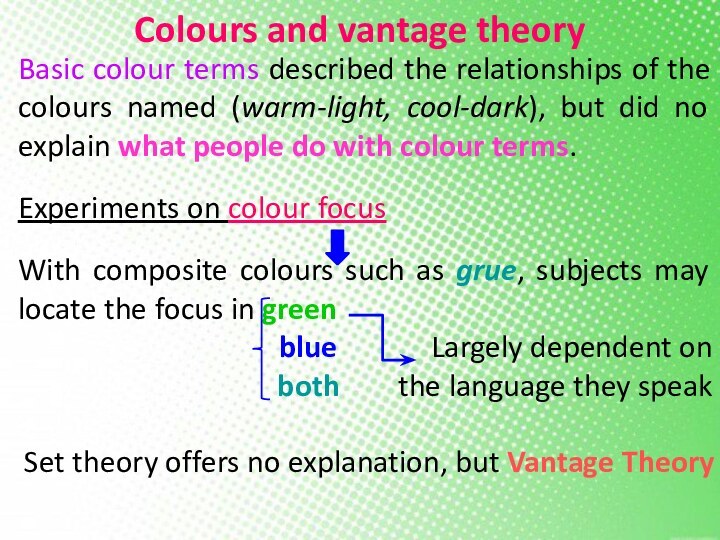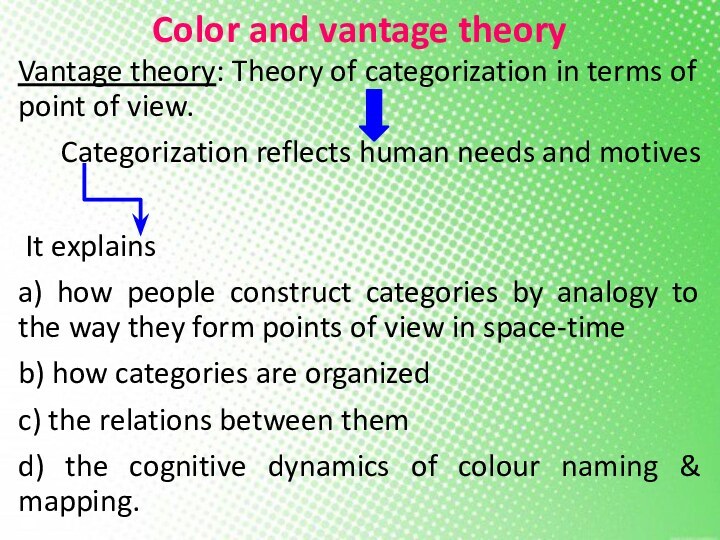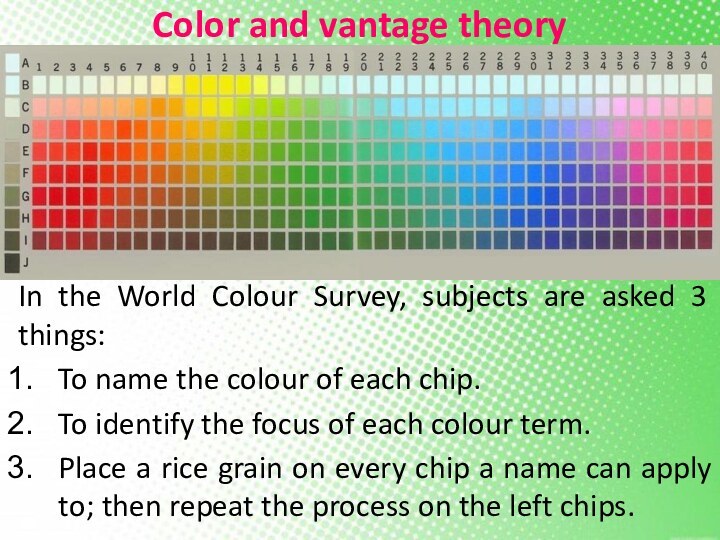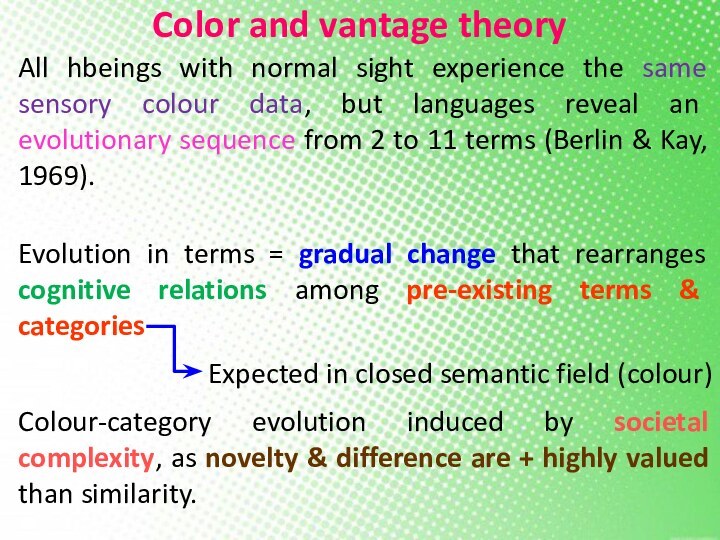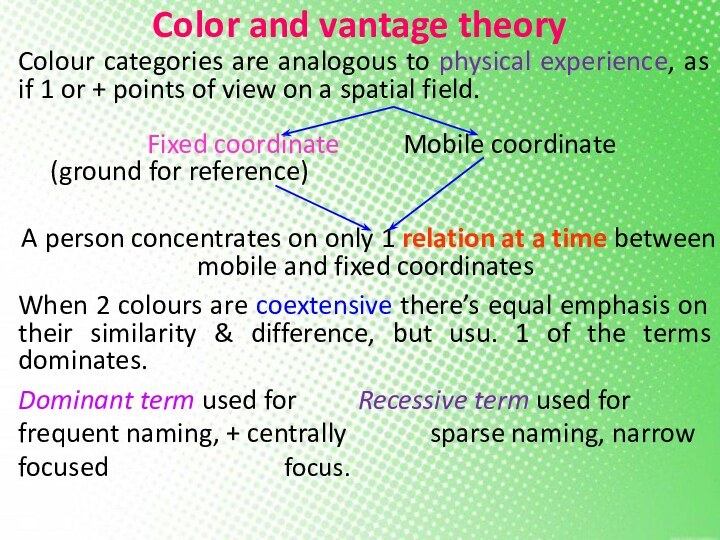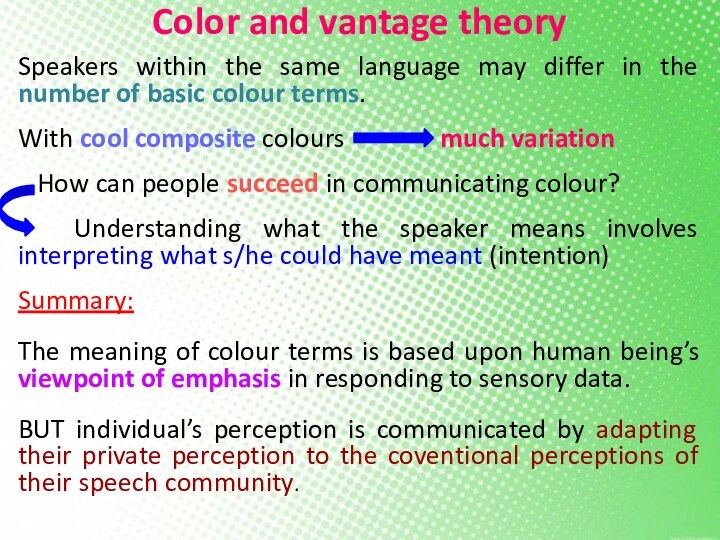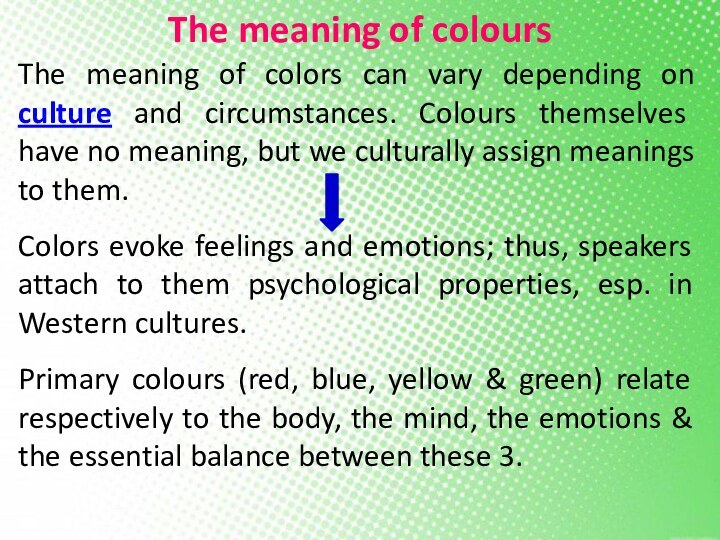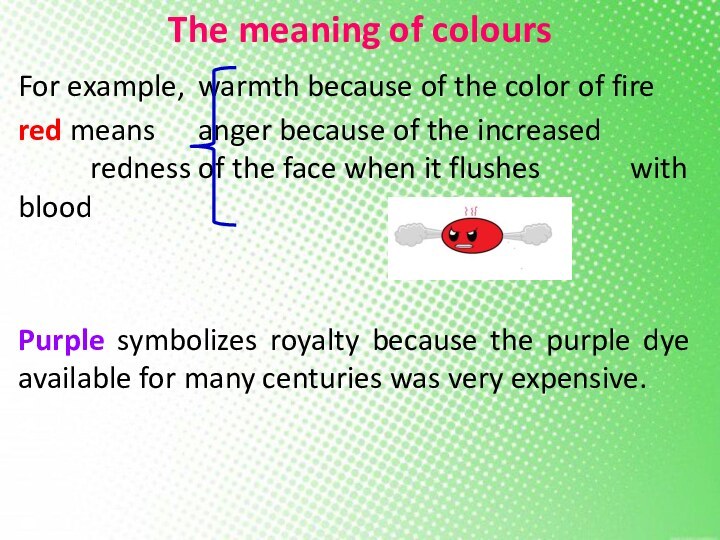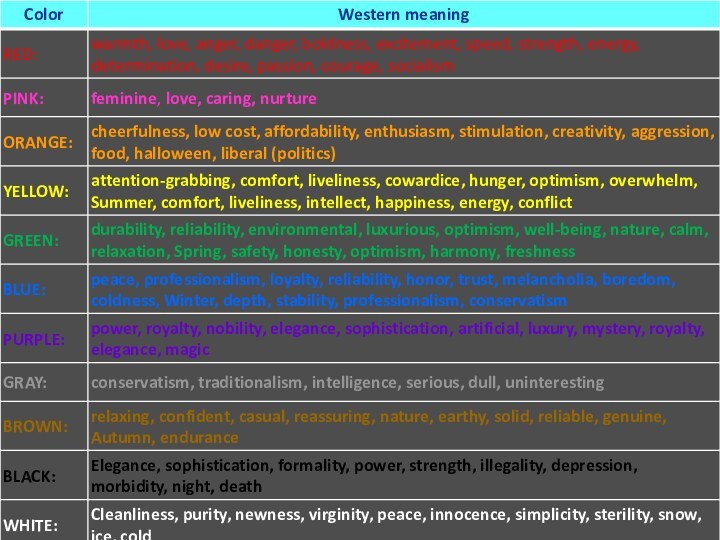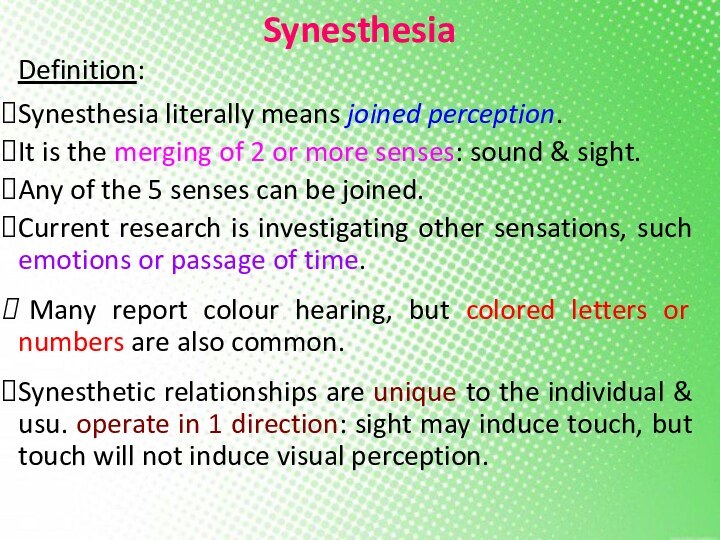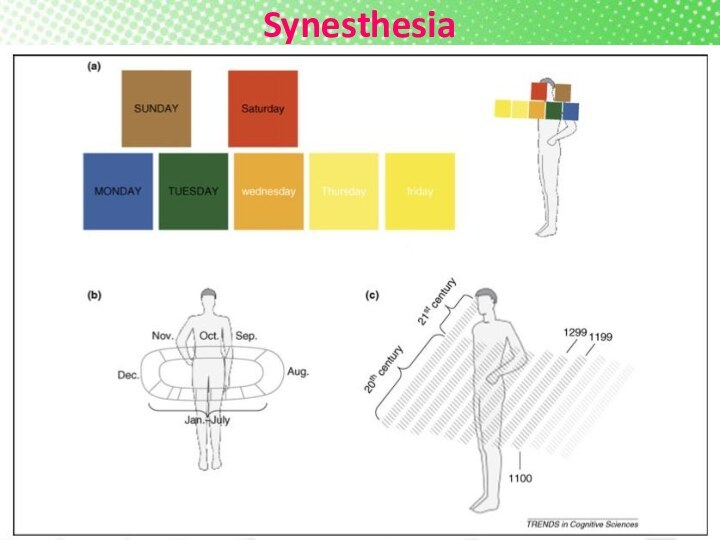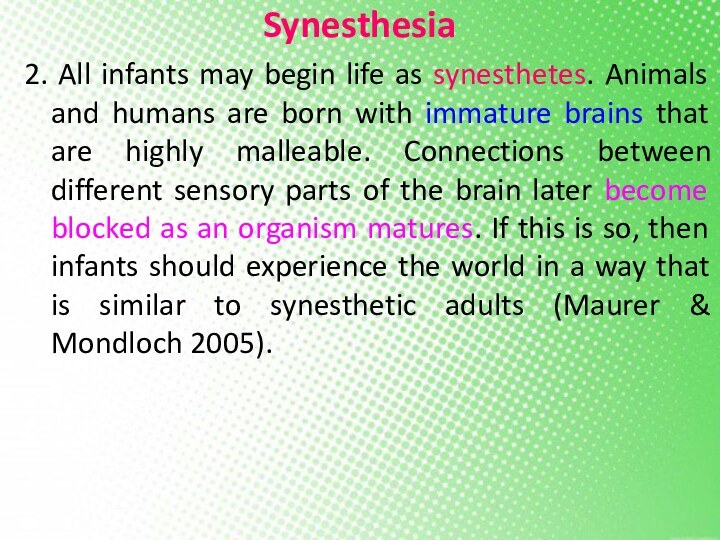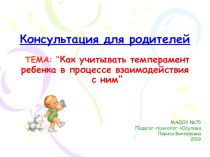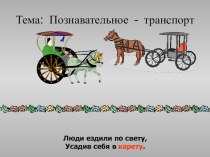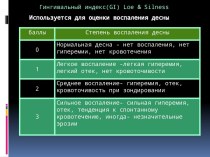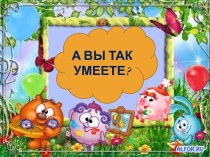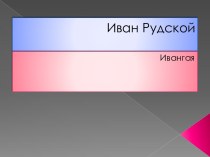Слайд 2
Cognitive Semantics
Language is a creation of human
beings to communicate with other human beings.
Semantics
deals with 1 aspect of human cognition.
Cognitive linguistics is the systematic study of language, constrained by the relations that human beings
perceive in nature;
have experience of in the world;
conceive of in abstract and metaphysical domains.
Perception is the categorization of sensory data using biologically & culturally determined criteria.
Cognitive Semantics determines the influence of perception in linguistic categories, semantic fields & frames.
Слайд 3
The meaning of words for back
Human mind &
body constrain our perception & cognition. Let’s have a
look at the word back:
Language is anthropocentric
humans describe the world with reference to the human body & its everyday experiences.
All speech communities use the human body & its parts to describe things in the world around them:
Most counting systems based on 4, 5 (fingers on a hand), 10 or 20 because of our hand or feet structure.
Units of measurement are also parts of human body: foot, inch or hand.
Слайд 4
The meaning of words for back
Most people are
right hand
is regarded as +
right-handed positive than left hand.
Gender terms to animals often determined by importance of animal’s sex.
So language is human-centered:
Canonical human bearing: the upright bipedal human being confronting the world by walking forward.
Canonical human encounter: 2 people confront one another face-to-face.
The human body is a location & a proper part, f. ins. back.
“Part or location located across the shoulders & lengthways with the spine” (prototypical notion).
Слайд 5
The meaning of words for back
1. The intrinsic
core back: The back is on the opposite side
of the body from the “interactive-side”, i. e. the side where the mouth, breasts, belly and external genitals are located & from which the limbs extend (the side of main interaction & access to a person involved in food ingestion, sexual reproduction, nurturing & different social interaction).
2. The peripheral back: The back is on the opposite side from the leading edge (= the front)
when a person is walking normally.
Слайд 6
The meaning of words for back
3. The back
names the part of location of a static
concrete
inanimate object on the opposite
side to an intrinsic front if the front is the
“interactive-side”confronting the human
viewer computers, cupboards,
fridges or houses.
4. The back/tail end or rear of an object capable of mobility ison the opposite end from
the leading edge when the object
is in motion. The front of a cow or
a snake is determined from
where its head is.
Слайд 7
The meaning of words for back
The way in
which speakers perceive the world &, as a result
of their perceptions CONCEIVE of it, informs their linguistic categorization.
A front & a back are ascribed to a static inanimate object depending which side of it the human viewer is facing.
Matter of cultural convention
5. The back/rear of a crowd, herd, flock or caravan facing in a direction is that part in the collection
from about halfway through the collection
in the direction the rears of its individual
members are facing.
Слайд 8
The meaning of words for back
The semantic relations
for uses of back derive from the JOURNEY SCHEMA,
an elaboration of 4 “opposite to the leading edge of a human”.
A person moving foward towards place D
(destination) from place B (base) journeys
through both space & time.
Backstative adv: people & things are back to B either in time or space: an hour back, a mile back.
Backdynamic adv: Anything moved from B to D can be said to be going back to B if it returns to B: move back, put back, …
Backrelational loc: Anything that journeys from B to D, being all points in space & time between B & D behind the entity journeying: X was kept back a year, X is behind others.
Слайд 9
The meaning of words for back
Backmotional v: Anything
that moved from B to D goes back from
D if it runs backwards with its back as the leading edge when moving from D:
Cars back up (“move in reverse”).
People back off/away (“retreat backwards”).
Backsupport v: A supports C if A is supporting C in some attempt & A is located behind C in a formal parade:
The manager has refused to back our proposal.
Слайд 10
The semantic-syntactic network of back
THING. Noun head in
NP: the back of NP
PLACE. Locative preposition governs a
proper part of NP: on my back, at the back of
PLACE. Spatial locative preposition governs noun with no determiner: in back of (= “in place of”, “in time of”)
ATTRIBUTE. Prenominal adjective: back seat, back end.
SPATIAL or TEMPORAL STATE. Stative predicate: be back.
ACT. Vsupport. Active nonmotional predicate: back sth or sb
DIRECTION. Adverbial particle with motional verb: go back, (cf. go up).
ACTION. Motional verb: back “move back”
Слайд 11
Colours and vantage theory
Basic colour terms described the
relationships of the colours named (warm-light, cool-dark), but did
no explain what people do with colour terms.
Experiments on colour focus
With composite colours such as grue, subjects may locate the focus in green
blue Largely dependent on
both the language they speak
Set theory offers no explanation, but Vantage Theory
Слайд 12
Color and vantage theory
Vantage theory: Theory of categorization
in terms of point of view.
Categorization reflects human needs
and motives
It explains
a) how people construct categories by analogy to the way they form points of view in space-time
b) how categories are organized
c) the relations between them
d) the cognitive dynamics of colour naming & mapping.
Слайд 13
Color and vantage theory
In the World Colour Survey,
subjects are asked 3 things:
To name the colour of
each chip.
To identify the focus of each colour term.
Place a rice grain on every chip a name can apply to; then repeat the process on the left chips.
Слайд 14
Color and vantage theory
All hbeings with normal sight
experience the same sensory colour data, but languages reveal
an evolutionary sequence from 2 to 11 terms (Berlin & Kay, 1969).
Evolution in terms = gradual change that rearranges cognitive relations among pre-existing terms & categories
Expected in closed semantic field (colour)
Colour-category evolution induced by societal complexity, as novelty & difference are + highly valued than similarity.
Слайд 15
Color and vantage theory
But discrimination is physiologically constrained
Contrast dark-bright starting point for colour naming
Brightness/luminance perceived before
hue
Colour category pays greater attention to
brightness or hue
Emphasis on similarity Emphasis on difference
favours composite colours favours individual hues & + categories
- distance bet. stimuli + distance bet. stimuli
Слайд 16
Color and vantage theory
Colour categories are analogous to
physical experience, as if 1 or + points of
view on a spatial field.
Fixed coordinate Mobile coordinate
(ground for reference)
A person concentrates on only 1 relation at a time between mobile and fixed coordinates
When 2 colours are coextensive there’s equal emphasis on their similarity & difference, but usu. 1 of the terms dominates.
Dominant term used for Recessive term used for
frequent naming, + centrally sparse naming, narrow
focused focus.
Слайд 17
Color and vantage theory
Speakers within the same language
may differ in the number of basic colour terms.
With
cool composite colours much variation
How can people succeed in communicating colour?
Understanding what the speaker means involves interpreting what s/he could have meant (intention)
Summary:
The meaning of colour terms is based upon human being’s viewpoint of emphasis in responding to sensory data.
BUT individual’s perception is communicated by adapting their private perception to the coventional perceptions of their speech community.
Слайд 18
Color and vantage theory
Drawback:
Vantage theory explains use &
development of colour terms, but says nothing about semantic
specification of a colour term.
A congenitally blind person cannot experience colour; s/he can only understand it analogically & conceptually.
A banana is yellow
Colour-of relation without knowing what yellow means.
Слайд 19
The meaning of colours
The meaning of colors can
vary depending on culture and circumstances. Colours themselves have
no meaning, but we culturally assign meanings to them.
Colors evoke feelings and emotions; thus, speakers attach to them psychological properties, esp. in Western cultures.
Primary colours (red, blue, yellow & green) relate respectively to the body, the mind, the emotions & the essential balance between these 3.
Слайд 20
The meaning of colours
For example, warmth because of the
color of fire
red means anger because of the increased
redness of the face when it flushes with blood
Purple symbolizes royalty because the purple dye available for many centuries was very expensive.
Слайд 22
Synesthesia
Do you see white when you stub your
toe?
Do you dislike the personality of your bedroom’s doorframe?
Does
Monday look blue to you? … Literally?
Can you hear, taste or smell colours?
Слайд 23
Synesthesia
Definition:
Synesthesia literally means joined perception.
It is the merging
of 2 or more senses: sound & sight.
Any of
the 5 senses can be joined.
Current research is investigating other sensations, such emotions or passage of time.
Many report colour hearing, but colored letters or numbers are also common.
Synesthetic relationships are unique to the individual & usu. operate in 1 direction: sight may induce touch, but touch will not induce visual perception.
Слайд 24
Synesthesia
Backmotional v: Anything that moved from B to
D goes back from D if it runs backwards
with its back as the leading edge when moving from D:
Cars back up (“move in reverse”).
People back off/away (“retreat backwards”).
Backsupport v: A supports C if A is supporting C in some attempt & A is located behind C in a formal parade:
The manager has refused to back our proposal.
Слайд 26
Synesthesia
Colors in the synesthetes' world have properties that
most of us would never dream of:
red is
solid, powerful and consistent
yellow is pliable
brilliant and intense chocolate is rich purple
confusion is orange
The cause remains a mystery. There are several theories:
1. Irregular sprouting of new neural connections within the brain leads to a breakdown of the usual boundaries between the senses. Thus, synesthesia is the collective chatter of sensory neighbors once confined to isolation.
